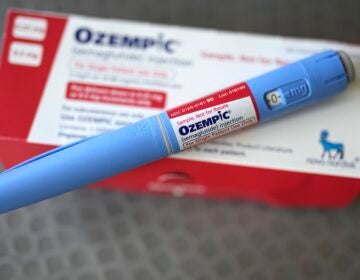Delaware program pairs counselors, cops to help suspects with mental illness
The program is funded by a $73,000 grant from the U.S. Department of Justice.

(ChiccoDodiFC/BigStock)
A new program in Delaware’s New Castle County is taking a different approach to policing and mental illness.
The program is teaming up a cop and a counselor to connect vulnerable people to treatment right away — instead of arresting them unnecessarily.
Until 2016, Delaware was under court order to move mentally ill patients out of hospitals and into the community. But that has resulted in former patients interacting more frequently with police.
Amy Kevis, a former police officer who’s now a director at Connections Community Support Programs — a nonprofit that helps vulnerable people with housing, jobs, and other services — has a unique perspective.
When she switched jobs, Kevis said she started hearing from former colleagues, who knew she had taken a job in the mental health world.
“They would call me, they’d say, Kevis, what are we supposed to do? We’ve got this guy, and how do we handle this?” she says.
Eventually, a counselor from Connections began riding along on patrols.
Based on a program in Memphis, Tennessee, the approach consists of an officer speaking with a suspect and assessing the situation. The counselor then steps up and helps the individual connect with services — if that’s what’s needed. So far, the partnership has engaged 62 people.
Previously, police would refer those in need of help to crisis intervention teams. Those teams were helpful, Kevis said, but transitioning someone into services was more difficult. When the team tried to hand someone off to another group or agency, that individual might fall through the cracks, Kevis said.
“When police come in contact with somebody who is having a mental health or substance abuse issue, we don’t want them to have to wait until the next business day to get into treatment. We want to get them into treatment right away,” said Kevis. The counselor traveling with police, she added, is a link to programming.
“Our clinician can get this person into our full continuum of services … whether they need induction for methadone, whether they need inpatient residential [treatment] — whatever their needs may be,” she said. “We have that full continuum at our fingertips.”
The program is funded by a $73,000 grant from the U.S. Department of Justice.
Its focus is on helping people who are addicted to drugs, but Kevis noted that up to 80 percent of Delaware prisoners have an addiction, and another disease, such as bipolar disorder.
Pairing counselors and cops comes from a growing realization among law enforcement officers that arrests and incarceration won’t end drug addiction or help those with mental illness, she said.
“When you arrest the same person 10 times a year, and they’ve got a heroin addiction, what benefit are you realizing there?” she said.
WHYY is your source for fact-based, in-depth journalism and information. As a nonprofit organization, we rely on financial support from readers like you. Please give today.




